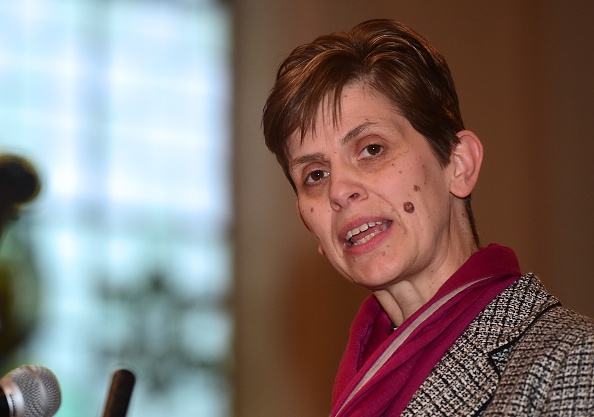LONDON – The Church of England named the first female bishop in its 500-year history on Wednesday, promoting saxophone-playing, soccer-loving vicar Libby Lane to bishop of Stockport.

The announcement comes five months after the church ended a long and divisive dispute by voting to allow women to serve as bishops.
Lane’s first act was to lead a prayer for victims of the Taliban school massacre in Pakistan.
She said her promotion was “an unexpected joy.”
Archbishop of Canterbury Justin Welby, who succeeded where his predecessors failed in elevating women to church leadership, said he was “absolutely delighted” by the appointment
Prime Minister David Cameron said it was “an historic appointment and an important step forward for the Church towards greater equality in its senior positions.”
Lane was ordained in 1994; her husband is also an Anglican priest. Her biography on the website of the Church of St. Peter’s Hale, where she currently serves, says her interests include “learning to play the saxophone, supporting Manchester United, reading and doing cryptic crosswords.”
The 80 million-strong global Anglican Communion, whose members range from conservative evangelicals to supporters of gay marriage, has long been divided on the role of women in church leadership.
The Episcopal Church in the Unites States was the first member to have a woman serve as bishop and is now led by a woman.
The Church of England’s national assembly, the General Synod, voted for the measure in July. A previous attempt two years earlier had failed to reach the required two-thirds majority in each of its three houses – bishops, clergy and lay members.

Comments